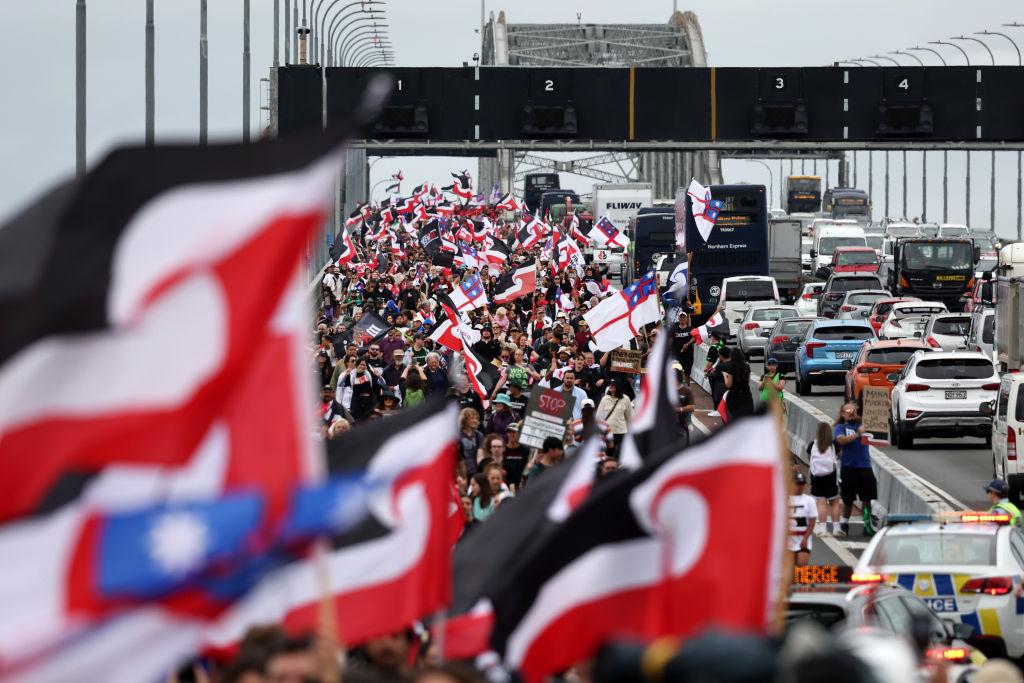Protesters objecting to the introduction of the ACT Party’s Treaty Principles Bill—aimed at codifying and, in some cases, overriding decades of common law on the Treaty of Waitangi—caused two northbound lanes on Auckland’s busy Harbour Bridge to be closed this morning.
Considered the founding document of New Zealand, the Treaty was signed between the British Crown and most Māori chiefs. There are also two versions—one in English and one in Māori—and they do not say exactly the same thing.





